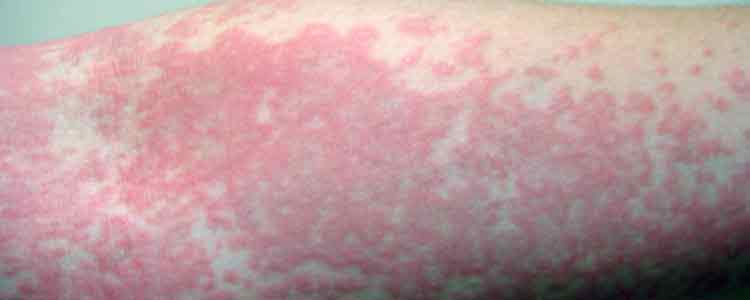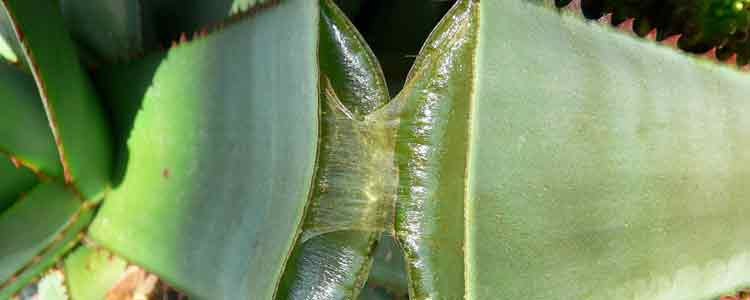
Hives are generally a response to your body releasing histamines as an allergic response to food, medication, or a variety of other allergens. But the cause of hives might not always be known. Urticaria (another name for hives) commonly manifests as little, bloated, itchy, red areas of skin which could occur singularly or in clumps. Left untreated, urticaria will usually fade in several hours, but new hive rashes can pop up after the original outbreak fades. Most hive outbreaks tend to fade entirely in the course of 2 or 3 days. For those who want to speed up their recovery time, there are plenty of natural remedies for hives available that actually work quite well. In this post, we’ll be going over 8 of them.
1) Red Alder Tea
Make use of the leaves and bark of the red alder by boiling them. Once they start to break down and the water darkens, allow the tea to cool. Put this liquid right on the hives and wrap them, or soak the hives in it if possible (if it is on the hands, for example). You can also drink some alder bark in pill form or as a powder mixed into a liquid until the hives fade.
2) Stinging Nettle
Nettle is thought by many to be one of the strongest natural herbal antihistamines. Nettle might help treat psoriasis, hives, eczema, and varicella.
3) Bromelain
Bromelain is a protein, or proteolytic enzyme, extracted from the stems of pineapples. It is also found in the leaves and throughout the fruit in lesser concentrations. As a very effective treatment for persistent hives, it’s also a powerful anti-inflammatory, stronger even than some of the prescription drugs available. It works by decreasing the allergic response, thus alleviating hives and related skin irritation.
4) Curcumin in Turmeric
Curcumin is turmeric’s active ingredient. When consistently taken, curcumin behaves as an all-natural antioxidant and antihistamine for the body. If you like it can be used right on the skin as well. You just need to add the powder to some water or aloe vera (preferred) to make a paste.
5) Licorice Root
Licorice root may decrease irritation due to urticaria and supports your immune system, which in turn assists the body in recovering from symptoms faster.
6) Ginger
Called a “wonder drug” across the planet, ginger could be taken in a myriad of ways: integrated into meals, taken in tablet form, or utilized in steam treatments. To experience the most benefits of ginger root, try to purchase it fresh and gradually dab the ginger (after the skin is removed) on the inflamed skin. Cool the ginger inside your fridge ahead of time to get a nice cooling effect when you use it.
7) Apply Aloe Vera
Used topically, Aloe Vera reduces inflammation and offers a protective coating while moisturizing the skin. It also provides cooling for the tissues, relieves redness, itching, stinging and discomfort. When it is taken internally it helps to stimulate the immune system and gets rid of toxins that may cause inflammation.
8) Lastly, Try Cool Compresses and Baths
Take a cool bath or consider using a cold compress if you don’t have hives which are activated by cold (an uncommon thing, but it does happen). The cold helps to block the further release of histamines and shrinks the arteries. Add some oatmeal to help relieve the itchiness.

Warnings
Organic anti-histamines and other herbs used may include strong active ingredients which cause profound changes inside the human body. Not all herbal treatments might be suitable for you, particularly when you’ve got specific allergies or illnesses, or if you’re pregnant. Prior to taking any sort of herbal antihistamines to help care for your hives, speak to your primary health-care provider about likely side effects, correct dosage, and potential drug interactions.
Possible Reasons for Hives
You should determine what causes them in order to prevent hives in the future. When you’re not sure, begin maintaining a daily diary. The most likely suspects are things which you eat, drink, or consume – – food, drink, drugs, and supplements. However, even in the event that you don’t see any clear links, continue maintaining your diary, noting other variables like weather, anxiety levels, clothes, or the quantity of time that you’re out in direct sunlight. With proper monitoring, you can link a specific lifestyle variable with the eruption of these red, itchy welts.
As an example, some individuals respond to preservatives in wine and particular foods (like sulfites). When you’ve determined a food cause, remove it entirely from your diet plan and find out whether you have fewer outbreaks.
Typical drug triggers include antibiotics and nonsteroidal anti-inflammatory drugs (NSAIDs) including aspirin and ibuprofen. Physicians have also heard about a number of other triggers, including tranquilizers, sedatives, diuretics, diet supplements, antacids, arthritis drugs, vitamins, eye drops, ear drops, laxatives, and douches. This is why it’s best to test things out for yourself and monitor your results.
